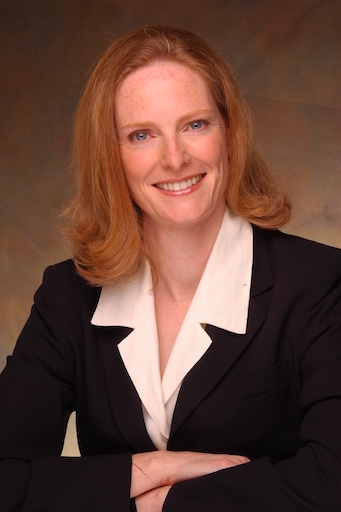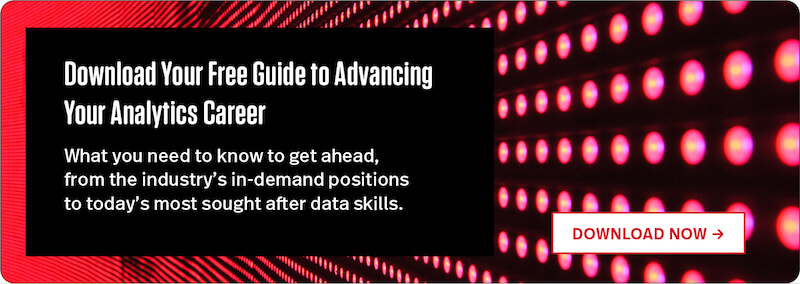We sat down with Amanda Welsh, faculty director for Northeastern’s Leadership and Project Management Domain and Professor of the Practice for the MPS in Analytics, to learn more about her work and research interests.

Name: Amanda Welsh, PhD
Title: Faculty Director, Leadership and Project Management Domain and Professor of the Practice, MPS in Analytics in the College of Professional Studies.
Joined NU: 2019
Research interests: impact of technology on literacy, disinformation in social media, new data types created by new technologies
Publications: The Identity Theft Protection Guide: A Consumer’s Guide to Information Collection and What to Do About It. St. Martin’s Press, 2004.
Q: First, an icebreaker: Tell us one fun fact about yourself or something most people don’t know about you.
I used to design videogames for a living! My games have won awards in several countries.
Q: What drew you to the field of analytics?
Starting with my dissertation on neural network models of language processing from Harvard, I have been drawn to managing, understanding and, on occasion, exploiting large data sets. At the same time, as a business leader responsible for managing global teams, I have come to appreciate the value of paying attention to the human side of every equation. Data and people have one important thing in common: neither is perfect! Understanding that and using that understanding to create advantage is very rewarding.
Q: Tell us more about your career before coming to NU.
Prior to joining Northeastern, I served for 25 years at the intersection of big data and media, founding two data-driven start-ups, Integrated Media Measurement Inc. (IMMI) and garageband.com. I also worked as a Media Research Scientist at Google, and most recently as EVP of Data Science and Digital Enablement for The Nielsen Company where I designed and ran a global partner program. I have published articles on advertising impact and data collection, including a book on consumer data tracking and privacy.
In addition to my business experiences, I am active in the non-profit world as Executive Director for The Foundation for Scholarly Culture and am on the Board of Directors for Raising a Reader, a national literacy/family engagement program.
Q: What attracted you to Northeastern University and the College of Professional Studies?
In history, we have had the idea of the “gentleman scholar,” typically a wealthy man who used his free time to better himself and his world through learning. I like the more modern creation: the “businessman scholar.” Increasingly, businesses are forming partnerships with higher education and supporting their own employees in sharing research designed to drive a discipline forward. I really like the professional, applied focus of the CPS academic programs. They help new students make the journey from student to “businessman scholar.”
I also am having a great time within the culture of CPS. There is a tremendous appetite—and freedom—for faculty members to push boundaries and experiment with how to package and present curricula. This feels very unusual in a higher education environment and gives me confidence that CPS will help lead the revolution in rethinking 21st-century universities. While many other universities talk a good game, CPS and Northeastern are getting to the business of putting it all into practice.
Q: What do you consider your biggest research or industry accomplishment(s) thus far?
Instead of one single accomplishment, I take pride in the organizing principle of my career. I have consistently enjoyed pushing the envelope. In grad school, I was among an early generation of researchers trying to apply neural networks (now a staple of machine learning and AI). One of my startup co-founders, Jerry Harrison from the Talking Heads, likes to claim that we invented crowd-sourcing with garageband.com. At my second startup, Integrated Media Measurement Inc, we built a mobile application to track daily media exposure BEFORE the iPhone and Android were invented! At Google, I helped them understand mobile advertising in its infancy. At Nielsen, I helped them imagine a move from a traditional subscription model for data to one leveraging a more modern business model based on ecosystems. Business ecosystem thinking had only typically been applied to software platforms—we instead defined a data ecosystem solution that became an industry first.
Q: What courses are you teaching in the coming year?
I’m excited to be teaching an intro course in data analytics. This is a chance to shape how an up and coming group of data analytics professionals think about choosing the right model to extract value from data, ethical implications of data use, and how their skills complement other data professionals, notably data engineers.
Q: Are you involved in experiential learning opportunities for your students? Can you share more about them?
I am helping connect my students to opportunities from former colleagues, many of whom are now startup founders.
Q: Where do you see the future of your field headed? How can students prepare to meet the changing demands?
I am seeing two trends‚ one technical and one business. First, I believe we are experiencing a bit of hype around AI that is limiting our focus on the bigger picture. As successful applications of algorithms such as neural networks are showing results, there is a mad rush to apply “deep learning” techniques to ALL problems. In some cases, this is resulting in solutions that are complicated, opaque, and unnecessarily taxing computationally. Companies are losing time and money investing in this overkill.
A consensus is emerging that “deep learning” is best applied to problems of image or voice or text recognition. This suggests that there will be a return to reliance on more classical analysis for other kinds of problems (what do you do with an image once you have recognized it, e.g.) and heightened value in studying more traditional techniques as well as learning about deep learning. I would encourage students not to be distracted by media hype and be sure to get a solid grounding in a range of data analytics methods as well. Both will be needed moving forward!
Along the same lines as not having only one type of solution to a problem, I think we are beginning to see companies also want more than one type of person working on a problem. Rather than trying to hire one (hard-to-find) data scientist who can run a meaningful data project from inception to production, some companies are creating cross-functional teams that include: a subject matter expert to ask the right questions, a data analyst to experiment with the right approach to find answers, and an engineer to implement a scalable, production-worthy application. This suggests that the current trend to valuing employees with empathy and an ability to listen to other perspectives will only increase.
As with being sure to ground technical skills in a range of techniques, students shouldn’t be afraid to invest time in learning about disciplines entirely outside their own. At the Silicon Valley campus, for example, the analytics students will have an opportunity to participate in an experimental workshop this Fall lead by a museum administrator in how to look at and talk about art. We will then apply this approach to exploring pattern-finding in data. Machines typically work best when they have a clear and narrow focus. Humans, thankfully, don’t have to work that way…and that is the value they bring to a business discussion.
Q: What’s one industry-related book or publication that has influenced you?
The Power of Habit by Charles Duhigg. As humans with neural-based cognition, we recognize the world around us by creating patterns of electrical activity in our brain. And as we see the same things or do the same things, we reinforce the patterns our brains have encoded. Many of our actions are triggered by some element of a pattern we don’t consider or even recognize. It is humbling to think about how our basic biology makes us so prone to habitual behavior.
The power of habit—aka bias—is important to think about as we work with data. Our use of data is always encoding some sort of bias. How we clean or group data, when we accept or don’t accept deficiencies in data, what we consider outliers, and even what we accept as a reasonable outcome range are all decisions we make in working with data—and all can lead to changes in the outcome. Through his explanations of the power of habit, Duhigg helped me think more deeply about how to tease out bias.
Q: What advice would you offer to prospective graduate students interested in the analytics program?
You get out of anything only as much as you put in. Simple to say and hard to do. Northeastern has worked very hard to create strong programs with a lot of support elements. Take advantage of them!
Connect with Professor Welsh on LinkedIn
To learn more about the esteemed faculty of Northeastern’s College of Professional Studies, visit our faculty website.






Related Articles
Why Earn a Professional Doctoral Degree?
5 Tips to Get the Most out of Grad School
Is Earning a Graduate Certificate Worth It?